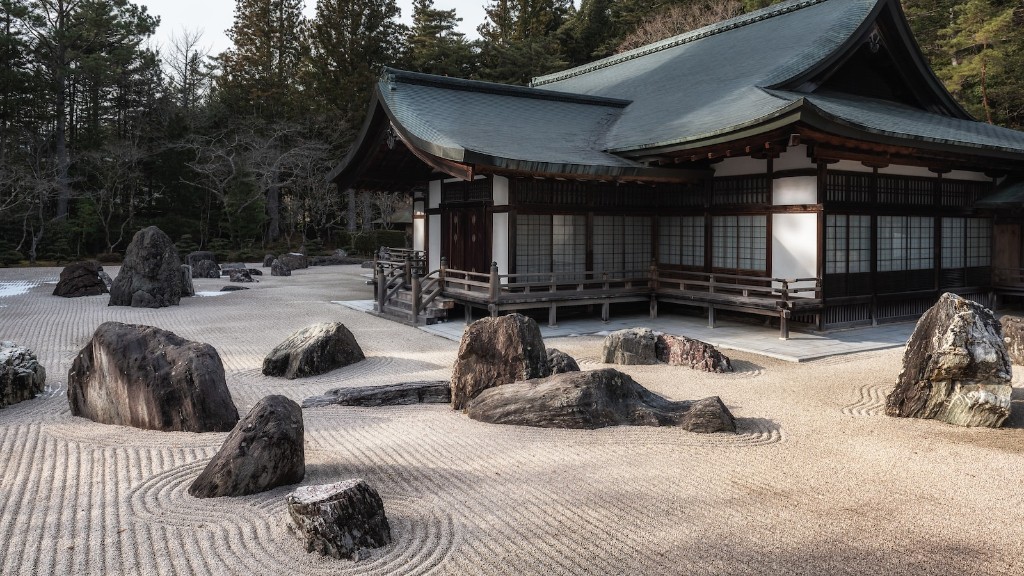Saying Hello
Japan is an incredibly vibrant and lively culture to experience and explore. When travelling to Japan, it is key to know at least a few phrases of the language to understand the locals and make the most of your visit. That’s why we have put together this list of essential Japanese travelling vocabulary so you can communicate with ease and make the most of your trip.
Saying hello is an important part of the travel etiquette in Japan, so it’s useful to learn 一礼 ‘ichi rei’ which means ‘to bow’ when greeting someone. Additionally, you should learn the phrase おはようございます ‘ohayougozaimasu’ which means ‘good morning’. Finally, to say goodbye, you should learn 今までありがとうございました ‘ima made arigatougozaimashita’ which means ‘Thank you very much.’
When travelling through Japan, particularly in the cities, the public transport system is extensive and perhaps a little overwhelming. That’s why it’s vital to know the words for the main destination points, such as 駅 ‘eki’ meaning ‘train station’. For when you’re looking for your platform, you should learn 発車 ‘hassha’ which means ‘train departure’.
Additionally, when travelling between Prefectures, you’ll need to know the phrases for the tourist centre or bureau. For this, you should learn 旅行業者 ‘ryokougyousha’ meaning ‘travel agent’ or 観光案内所 ‘kankou annaisho’ which means ‘tourism information centre’.
Finding Accommodation
When looking for accommodation on the go, it’s useful to know a few words which may come in handy. The word for ‘hotel’ in Japan is ホテル ‘hoteru’. For when you’re looking for a more traditional experience, you should learn the word 宿 ‘yado’ meaning ‘inn’ or 旅館 ‘ryokan’ which is an inn with hot spring baths.
If you’re looking for somewhere cheaper, try either the words ホストエル ‘hosuteru’ meaning ‘hostel’ or 借家 ‘shakkya’ meaning ‘rental house’. In addition to these words, it’s useful to know the words for ‘room’ in Japan, which is 部屋 ‘heya’.
Transportation
There are many forms of transportation in Japan, including 改札口 ‘kaisatsuguchi’, which means ‘ticket gate’. If you’re looking to take the bus, try the phrase このバスは ‘kono basu wa’ meaning ‘this bus’. When you’re looking to take a taxi, you should learn タクシー ‘takushii’ which means ‘taxi’.
If you’re visiting Japan for the first time and are unsure about buying a Japan Rail pass, this is an excellent investment for train commuters and can be bought at the りょこうセンター ‘ryokou sentaa’ meaning ‘travel centre’.
Food and Drink
The cuisine in Japan is incredibly diverse and many visitors enjoy the experience of some classic dishes. For when you’re looking for traditional food, try the phrase 居酒屋 ‘izakaya’ meaning ‘tavern’ or 地酒 ‘jizake’ meaning ‘local sake’.
When you’re looking for traditional Japanese breakfast, try the phrase ごはん ‘gohan’ which means ‘rice’ or 味噌汁 ‘misoshiru’ which means ’miso soup’. For a classic Japanese snack, try the phrase 焼きそば ‘yakisoba’ meaning ‘fried noodles’.
Shopping and Activities
When travelling in Japan, there is no shortage of places to shop and activities to take part in. For when you’re shopping for souvenirs, try the phrase ギフトショップ ‘gifuto shoppu’ meaning ‘gift shop’ or 認定パスポート ‘nintei pasupooto’ which means ‘certified passport’.
If you’re looking for places to sightsee, try the phrase 景勝地 ‘keshouchi’ which means ‘scenic spot’ or 神社 ‘jinja’ meaning ‘Shinto shrine’. Additionally, if you’re looking for activities to take part in, try 特産品 ‘tokusan-hin’ meaning ‘specialty goods’ or 気象情報 ‘kishou jouhou’ meaning ‘weather information’.
Trains
When exploring Japan, the train is often the preferred mode of transportation for travellers looking to get around on a budget. When you’re looking for the ticket office in Japanese, try the phrase 切符売り場 ‘kippu uriba’ meaning ‘ticket office’. When you’re looking to buy a ticket, try the phrase 新幹線チケット ‘shinkansen chiketto’ meaning ‘bullet train ticket’ or 甲種特急切符 ‘koushutokkyuu kippu’ meaning ‘express ticket’.
Additionally, you should learn the phrase 電車 ‘densha’ which means ‘train’ or 終点 ‘shuuten’ meaning ‘end or last station’. Finally, for when you’re looking for a timetable, try the phrase 時刻表 ‘jikokuhyou’ meaning ‘time table’.
Activities for Travel
Travellers visiting Japan for the first time often look for activities to take part in. For when you’re looking for an outdoor activity, try the phrase サーフィン ‘saafin’ meaning ’surfing’ or ハイキング ‘haikingu’ meaning ‘hiking’.
Alternatively, if you’re looking for something more cultural, try the phrase 画廊 ‘garei’ meaning ‘art gallery’ or 神楽 ‘kagura’ meaning ‘Shinto music and dance’. If you’re looking for a more laidback activity, try the phrase お茶の湯 ‘ocha no yu’ meaning ‘teahouse’ or カフェ ‘kafe’ meaning ‘café’.
Tipping
In Japan, tipping is not expected and is sometimes seen as impolite. That said, you may want to give a small amount of acknowledgement if you’ve been served exceptionally well. For when you’re looking to tip in Japan, try the phrase 特別な感謝 ‘tokubetsu na kansha’ meaning ‘special thanks’. Additionally, you could try the phrase お礼 ‘orei’ meaning ‘thank you’ or 頂 ‘itadaku’ meaning ‘receive’.
Vocabulary and Grammar
When travelling to Japan, it’s useful to have a basic understanding of the language. At the very least, you should know the basics of the 五十音 ‘gojuuon’ meaning ‘Japanese phonetic alphabet’. Additionally, it’s useful to have an understanding of the basics of 助詞 ‘joshi’ meaning ‘particles’ and how these are used in sentence structure. Finally, you should learn the key Kanji which are essential for getting around such as 火 ‘hi’ meaning ‘fire’ or 山 ‘yama’ meaning ‘mountain’.
Staying Connected
When travelling in Japan, it’s useful to get connected to the internet to help you communicate and make the most of your trip. For when you’re looking for a Wi-Fi hotspot, try the phrase Wi-Fiスポット ‘wai-fai supotto’ meaning ‘Wi-Fi spot’. Additionally, to buy a local SIM card


